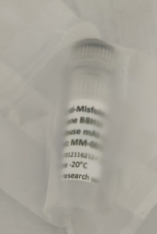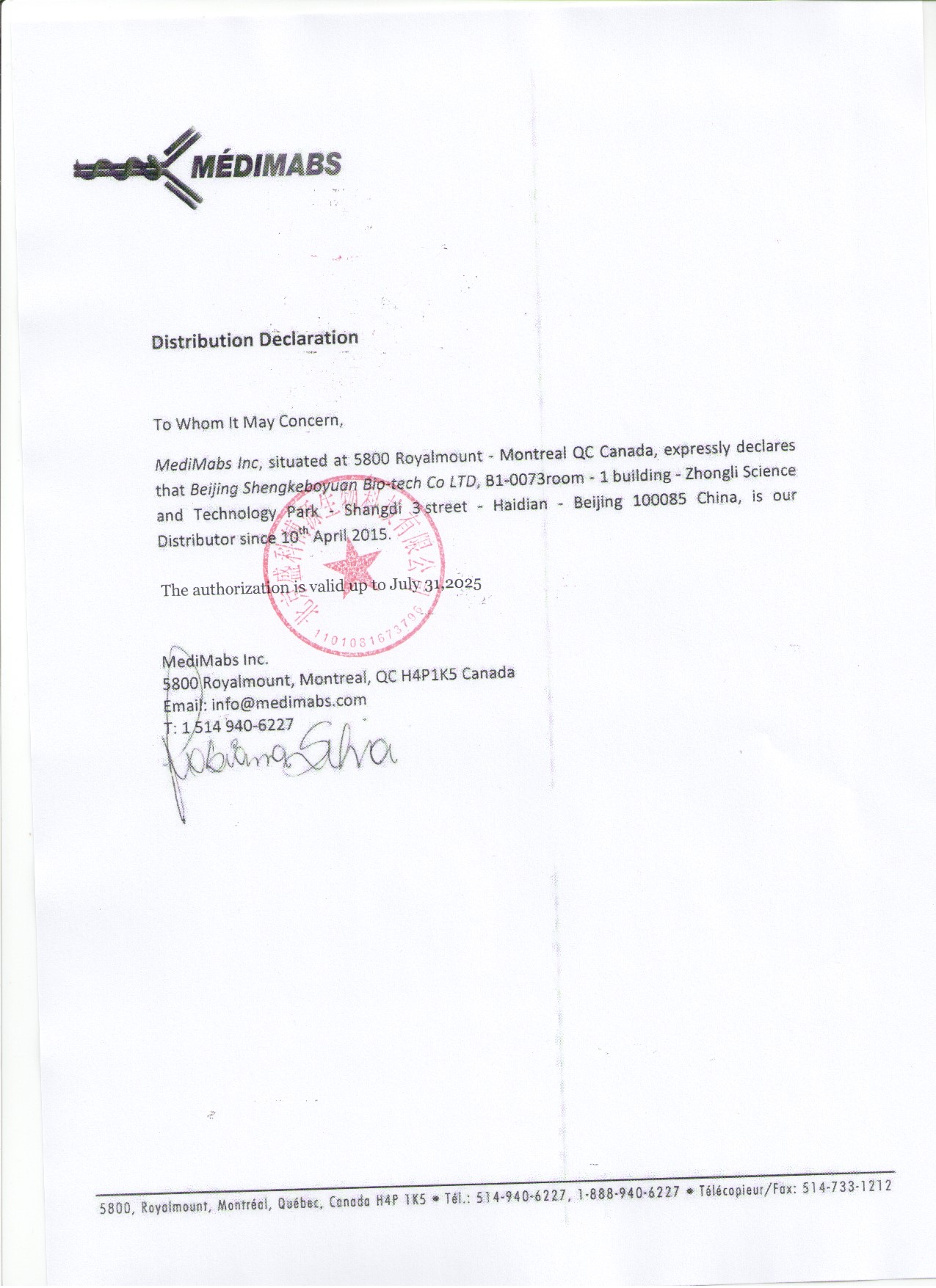 首页>
生物试剂
首页>
生物试剂
商家描述
商家资质信息
产品评价(0)
Target
Estrogen Sulfotransferase (EST)
Target background
Estrogen sulfotransferase (EST) is a cytosolic enzyme that catalyzes specific sulfonation with a high affinity for estrogens. Because EST is involved in estrone and estradiol metabolism, its expression in the male reproductive tract determines where, along the tract, an estrogenic environment predominates. EST may also be involved in sperm physiology during the epididymal transit.
Target alias
anti-estrogen sulfotransferase, anti-est , Sulfotransferase 1E1 , ST1E1 , Sulfotransferase, estrogen-preferring , SULT1E1
Immunogen
Full length recombinant bovine EST protein
Specificity
A highly specific and sensitive antibody against the bovine Estrogen Sulfotransferase.
Clone ID
---
Preservative
None
Format
Immunogen affinity purified, stored in PBS pH7.4 and lyophilized.
Recommend starting dilution
If reconstituted with deionized water in 100µL: WB 1 μg/ml; IHC 5 μg/ml; IF 10 μg/ml. Optimal dilution has to be determined by the user.
Limitations
Research Use Only
Storage
Lyophilized antibodies can be kept at 4ºC for up to 3 months and should be kept at -20ºC for long-term storage (2 years). To avoid freeze-thaw cycles, reconstituted antibodies should be aliquoted before freezing for long-term (1 year) storage (-80ºC) or kept at 4ºC for short-term usage (2 months). For maximum recovery of product, centrifuge the original vial prior to removing the cap. Further dilutions can be made with the assay buffer. After the maximum long-term storage period (2 years lyophilized or 1 year reconstituted) antibodies should be tested in your assay with a standard sample to verify if you have noticed any decrease in their efficacy. To limit antibody loss or degradation, BSA (final concentration 1%) and sodium azide (final concentration 0.02%) can be added to the suggested first dilution. It is important to first verify if those preservatives are compatible with your assay.
 会员登录
会员登录.getTime()%>)
 购物车()
购物车()

 成功收藏产品
成功收藏产品
